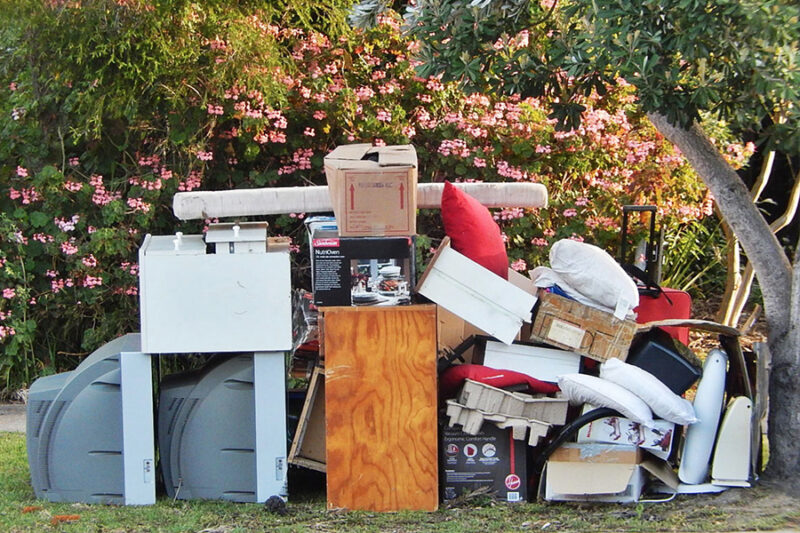
From 1st July 2020, new laws regarding the disposal of goods abandoned on the common property came into effect.
The regulation of the treatment of abandoned goods in strata schemes has been transferred from the Strata Schemes Management Act, 2015 (NSW) (“SSMA”) to the Uncollected Goods Act, 1995 (NSW) (“UGA”).
The process for the removal of abandoned goods previously set out in the SSMA no longer applies (and has been removed from the SSMA). The UGA now governs the lawful removal of abandoned goods and provided that that procedure is adhered to, a person so disposing of uncollected goods (or in accordance with an order of NSW Civil & Administrative Tribunal (“NCAT”)) does not incur any liability in respect of such disposal.
Goods are deemed “uncollected” for the purposes of the UGA if an owners corporation reasonably believes the goods have been abandoned or left behind on the common property.
Goods are categorised as follows:
- Low value uncollected goods (<$1,000)(at least 14 days notice to collect goods must be given)
- Medium value uncollected goods (>$1,000 but <$20,000)(at least 28 days notice must be given)
- High value uncollected goods ($20,000 or more)(goods must not be disposed of except in accordance with an Order from NCAT)
- Personal documents (eg birth certificate, passport, photographs, memorabilia, bank statements)(28 days notice must be given)
- Rubbish or perishable goods (no notice is required)
Motor vehicles may not be sold without a certificate from the Commissioner of Police that the relevant vehicle is not stolen or the subject of a personal security.
A specific procedure including the giving of notice and prescribed notice period applies for each category and only rubbish or perishable goods may be disposed of without notice or waiting periods.
The person disposing of the goods may recover the costs of disposal including from the proceeds of sale. Excess proceeds are treated as unclaimed moneys, and, if the proceeds of sale do not fully cover the removal costs, such costs may be recovered as a debt through the Courts.
NCAT may make Orders by application on the manner in which to dispose of, sell etc uncollected goods.
Except in case of rubbish or perishable goods, records must be prepared and kept for the prescribed period.
Goods of low, medium or high value may be moved or stored “in an appropriate manner”. There is no guidance on what is appropriate, however, for example, with an abandoned motor vehicle, moving it to the nearest place to which it may be lawfully moved (as was formerly permitted by the SSMA) should be acceptable.
Caution must be exercised when disposing/removal uncollected goods, as NCAT has powers to make various Orders, including, for example, for compensation for damage caused to the uncollected goods between the time of taking possession of them until the personal having an interest in the goods collects them.
You should now arrange for review of your by-laws to ensure they don’t conflict with the new regime.
For assistance in your specific circumstances and category of uncollected goods, please contact your strata manager.
Further information appears here on the NSW Fair Trading website.
DISCLAIMER: The contents of this article do not constitute legal advice and should not be relied upon as such. Appropriate legal advice should be sought in particular matters. Premium Strata cannot accept responsibility for any errors, including those caused by negligence, in this article or elsewhere on Premium Strata’s website. Premium Strata makes no statements, representations or warranties about and does not guarantee, and accepts no legal responsibility whatsoever arising from or in connection to the accuracy, reliability, currency, correctness or completeness of any material contained on Premium Strata’s website (which may include third party content).